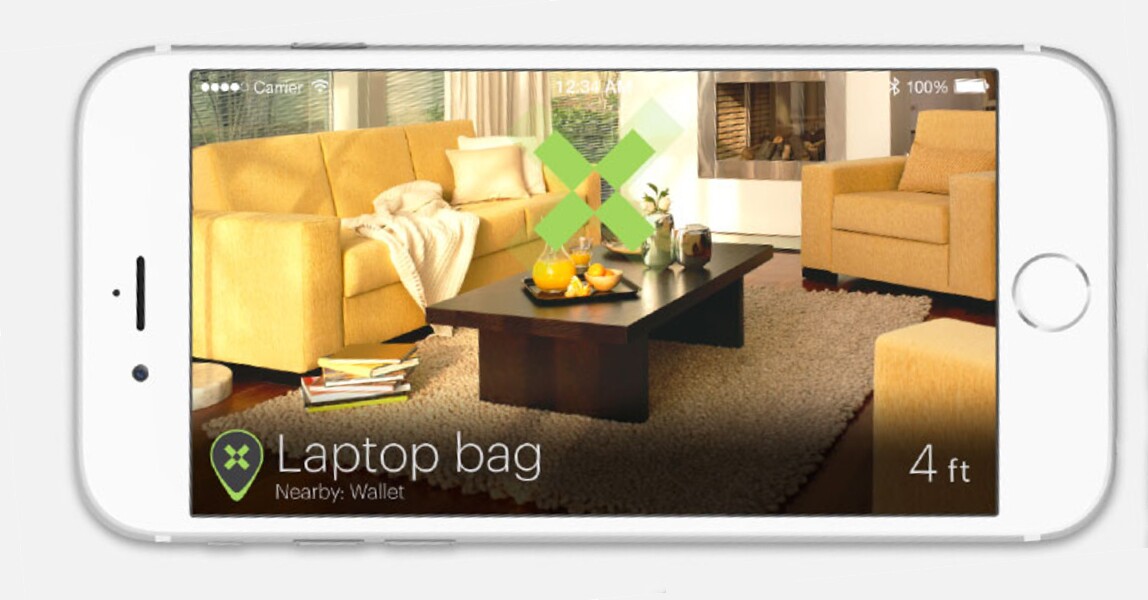Pixie Points are new location trackers that use your smartphone's camera to locate tagged objects in an actual picture of your surroundings. The system is claimed capable of tracking down "pixified" objects, which are marked with a bold X, to within a few inches of their location.
Sticking on a teardrop-shaped sensor tag called a Pixie Point onto your gadget or pet pixifies it; they're added to a digital map of objects which your smartphone keeps track of via Bluetooth using an augmented reality application. Any pixified object communicates with both the app and each other, even through walls, to form a closely-knit private network. The free iOS/Android app is able to use a secure network to precisely triangulate an object's coordinates within a 30 - 150 ft (10 - 45 m) range.
Which means if your child has the tendency to leave their pixified Kindle in the car, the app will guide you to it. Point your phone at the car in the driveway and you'll see an X marking the spot in the backseat. The app also creates an augmented reality map of every tagged object making it possible for you to see where everything is at a glance.

While most location trackers that use a smartphone work best at close range, they have issues with accuracy. Button TrackR uses wireless signal strength to indicate how close or far away you might be to the lost object, while Tile helps you out with text clues. With Pixie Points, all you need to do is look at an augmented reality image to see exactly where everything is.
If you've lost something beyond the system's 150 ft range, you'll be alerted to its last known location logged with the app. The company reportedly spent 2 years developing the technology to achieve accuracy levels to within a few inches.
Another cool feature of Pixie Points is being able to create customized checklists of all the tagged items you need, for individual kits like travel kits and business kits. All you need to do before leaving for office, for example, is view your computer bag with your smartphone to see if everything in your business kit is inside. The app alerts you if anything's missing.
Each Pixie Point tag has dimensions of 47 x 35 x 3.2 mm (1.8 x 1.3 x 0.1 in) and a lifetime of 18 months. The developers say that in order to keep the Pixie Points as thin as possible, a non-replaceable battery is used. When the internal battery runs low, the app will inform the user and the tag can be disposed of and replaced.
A single packet with four Pixie Points can currently be pre-ordered for US$39.95, while a 12 Pixie Point packet costs $109.85. Shipping begins in the (Northern Hemisphere) summer.
Check out a video of Pixie Points below
Source: Pixie





